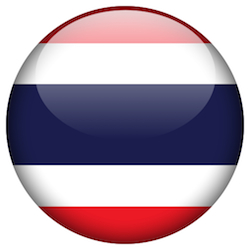Thailand to become regional hub with new legislation
Chris Hamblin, Clearview Publishing, Editor, London, 29 January 2014

The Securities and Exchange Commission in Bangkok has unveiled its strategic plan for the next two or three years. This might include a retail distribution review.
The Securities and Exchange Commission in Bangkok has unveiled its strategic plan for the next two or three years. It plans to make itself more efficient and improve corporate governance and enforcement. Vorapol Socatiyanurak, its secretary-general, is looking forward to the introduction of "professional wealth advisors to provide a service of personal asset allocation," which could be a reference to a Thai version of the UK's retail distribution review, and a series of financial literacy project. Greater variety among investment channels is another aim. Another aim is to "promoting the duties of directors, independent directors and audit committees" and to support something called "the private sector collective action coalition against corruption project," beefing up this initiative in an amendment to the existing securities law, with tougher punishments for non-compliance.
The SEC also plans to make the Thai capital market a regional investment hub. New regulations are on the way to accomodate overseas equities, bonds and mutual funds. It is even planning a major battery of studies to compare various countries' laws and regulations with each other. The eventual aim is to facilitate the listing of foreign securities on the Thai bourse for the first time.
Meanwhile, the Stock Exchange of Thailand, the country's foremost front-line regulator, has promised to proceed with plans for its new derivatives trading system to go live by mid-2014. It is also planning to improve Thai capital markets in four key areas, namely financial literacy, the bond market, the gold market and agricultural commodities. In the last case it plans to encourage the state sector to use derivatives to hedge against volatility in food prices.
In 2013, average daily trading value rose to an all-time high of 51 billion baht ($1.6 billion), the highest in the Association of South-East Asian Nations; market capitalisation from initial public offerings jumped to a record high of 340 billion baht, with BTS Rail Mass Transit Growth Infrastructure, an infrastructure fund IPO, being the biggest IPO in the ASEAN are; five Thai stocks were added onto the MSCI Global Standard Indices, the highest number of additions in Asia, three Thai-listed companies appeared on the Dow Jones Sustainability World Index, the highest number of additions in ASEAN, and the ASEAN corporate governance 'scorecard' showed that the average corporate governance score of Thai-listed companies topped that of all other ASEAN companies. The exchange is now trying to describe itself with the phrase "key sub-region connector."The exchange says that it will focus on expanding business in Cambodia, Laos, Myanmar and Vietnam, as both their growth potential and their need for funds is high. In addition to listing holding firms that invest abroad, SET plans to revise regulations to support foreign listings.
Thailand has been in political turmoil since early November and has experienced 18 coups d' etat since monarchical absolutism was abolished in 1932. In spite of this, it has developed and prospered throughout.












